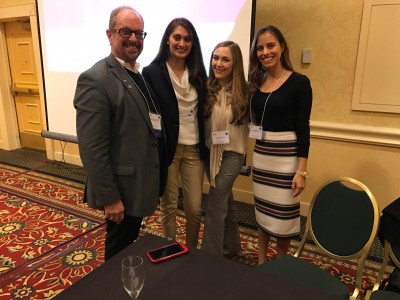NSU Newsroom
SharkBytes
Horizons
This version of NSU News has been archived as of February 28, 2019. To search through archived articles, visit nova.edu/search. To access the new version of NSU News, visit news.nova.edu.
This version of SharkBytes has been archived as of February 28, 2019. To search through archived articles, visit nova.edu/search. To access the new version of SharkBytes, visit sharkbytes.nova.edu.
Professor to be Honored for Work with Spinal Cord Injuries
College of Psychology Associate Professor Barry Nierenberg, Ph.D., will receive the Essie Morgan Award this fall from the American Association of Spinal Cord Injury Psychologists and Social Workers. The award is given to association members who have been nationally recognized for their work that contributes to the well-being of people with spinal cord injuries.
“I know 90 percent of the winners back to 1990 and what they’ve done. To be recognized in the same group as them is unbelievably humbling,” Nierenberg said. Nierenberg’s current research involves examining the mental health well-being of people with spinal cord injuries.
“Individuals tend to do well, but when you look at them as a group, they have much higher incidents of depression, anxiety, post-traumatic stress, as compared to people who don’t have a spinal cord injury,” he said. Giovanni Fava, an Italian doctor, studied the issue with two groups of patients and found that those who suffered from depression had 40 percent less well-being. Some participated in well-being therapy sessions, and in a follow up study six years later, the patients who received the therapy had 60 percent less recidivism than those who had not received therapy.
Nierenberg published a theoretical paper on well-being therapy and presented on it at several national conferences. His approach uses Carol Ryff’s factors of psychological well-being, and the patient examines which values are important to them and how they are living them.
“It’s not what happens to you, it’s what you make of it,” he said. “It’s the story you tell.” Nierenberg has met with a group of 30 people for participatory action research, who will be broken up into smaller groups of six to eight.
